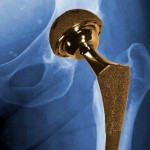
According to the article, prescription drugs have unique codes that can be used to track problems. But medical devices have no such identifiers and the FDA doesn’t even know how many devices are implanted into patients each year.
The FDA depends mostly on voluntary reports from doctors, patients, manufacturers and hospitals to alert the agency to problems with devices already on the market. But although the FDA does have some power to require manufacturers to conduct further studies or track a particular device once it’s sold, many devices don’t get that level of surveillance.
The report quotes cardiologist Frederic Resnic of Brigham and Women’s Hospital, who has worked with the FDA on medical device safety monitoring, as saying: “It’s much like a patchwork of streams of information getting to the FDA. The FDA is relying on anecdotal and very variable information about the safety of medical devices.”
The article specifically mentions hip implants as dangerous devices allowed to remain on the market too long as a result of FDA negligence.
In 2010, Johnson & Johnson subsidiary DePuy recalled its all-metal hip implants due to their failure at a higher-than-expected rate, and their tendency to leave toxic metal debris in the bodies of patients.
And Johnson & Johnson’s surgical mesh implants, used to treat urinary incontinence and pelvic organ prolapse, have prompted thousands of lawsuits due to their tendency to fail and cause health problems such as severe, persistent pain and organ perforation.
If you’ve had either of these devices implanted, you should consult with a doctor if you have any ongoing symptoms or health concerns. If you have significant injuries, you should also consult with a hip or mesh lawyer to discuss your legal rights.
See the report here: https://www.denverpost.com/nationworld/ci_20544821/fda-lacks-system-tracking-medical-devices-that-malfunction
